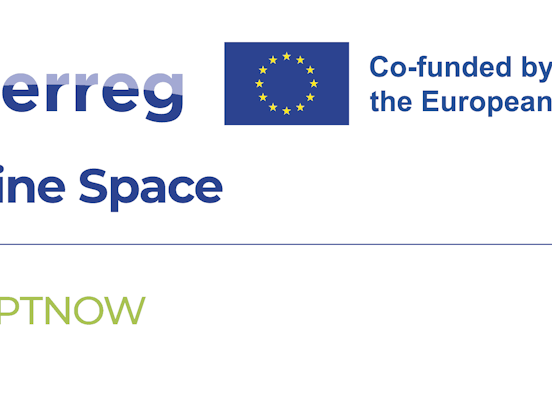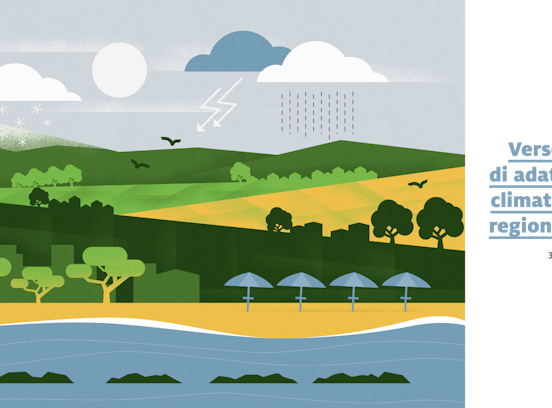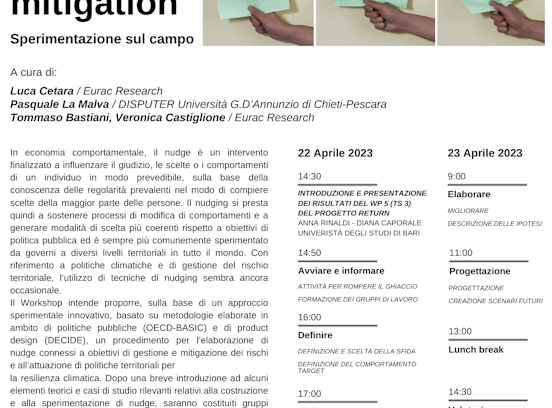Center for Climate Change and Transformation - Climate and Disaster Risk - News & Events - The Center´s efforts towards improving adaptation
The Center´s efforts towards improving adaptation
Today, October 13 is officially the International Day for Disaster Risk Reduction, an initiative taking place every year to encourage citizens and governments to take part in building more disaster-resilient communities.
One of the research groups within the Center for Climate Change and Transformation focuses specifically on Climate and Disaster Risk (CDR). The research group pursues the understanding and modeling of impacts and risks, including Climate Change, related to natural hazards in mountainous regions, with a transdisciplinary, integrated approach. Given the complexity of this challenge, the CDR group comprises researchers with different expertise working on projects with different scopes and characteristics.
Currently, the CDR is involved in several projects focusing on disaster risk management and climate change adaptation, such as Paratus, Adaptation South Tyrol, Support EUSALP. Here is how these projects are contributing towards an improved understanding of adaptation practices with a focus on the Alps.
Paratus
Paratus recognized that stakeholders in disaster risk management are faced with the challenge to adapt their risk reduction policies and emergency plans, though often lack the tools to account for the cross-sectoral impacts and dynamic nature of the risks involved. Paratus aims to fill this gap by developing an open-source platform for dynamic risk assessment that allows to analyse and evaluate multi-hazard impact chains, risk reduction measures, and disaster response scenarios in the light of systemic vulnerabilities and uncertainties.
A unique transdisciplinary consortium of research organisations, NGOs, SMEs, first and second responders, and local and regional authorities seek to address the following four objectives:
- Learning from the past. The project aims to develop an effective methodology to understand and analyse the dynamic and interactive conditions of risk to make better predictions for the future.
- Looking ahead: today’s future. The consortium develops a method to assess multi-hazard and multi-sector impact chains that will be applied to co-developed scenarios considering changes in climate conditions and dynamic exposure information and their interactions.
- Adapting to changes. PARATUS is co-developing context-specific decision-making tools suitable for stakeholders in different sectors and risk governance settings.
- User-centered risk assessment and reduction service. The partners are co-developing a service to analyse dynamic exposure, vulnerability and systemic risk, that can be applied in all phases of the disaster risk management cycle.
Paratus activities are tested in four different pilot areas: Caribbean, Alps, Romania, Istanbul. All study areas cover a combination of natural and anthropogenic hazard interactions, assets and vulnerabilities in different sectors, and international, cross-border, local analysis.
Within this project, Eurac Research provides specific expertise in the areas of impact chains, multi-hazard risk assessment, risk governance, and risk communication in mountain regions.
Adaptation South Tyrol
Effective strategies for disaster risk reduction are intertwined with adequate climate adaptation measures for resilient societies. In this sense, the Adaptation South Tyrol project aims at supporting the Autonomous Province of South Tyrol in Italy on preparing an adaptation strategy and developing concrete sector-specific and overarching adaptation measures. The project aims to understand and identify climate risks and adaptation needs within the Province as well as develop cross-sectoral adaptation measures.
Eurac Research coordinates the development of this adaptation strategy, which also involves actors from the provincial administration and research as well as actors from civil society.
Support EUSALP
Given the increasingly transboundary nature of disasters, it is clear that cross-border cooperation plays a crucial role in disaster risk reduction efforts throughout the Alps.
The aim of the Support EUSALP project is to provide the EU Strategy for the Alpine Region (EUSALP) with effective technical assistance in supporting the establishment of a stronger multi-level governance and the implementation of concrete actions on the territories of the EUSALP strategy. The project will act as facilitators on a strategic level by supporting the integration of results into public policies, and on an advocacy level by increasing visibility and strengthening the communication toward its audience, including the public and the youth.
Eurac Research is co-leading Action Group 8, which focuses on Risk Governance and aims at improving risk management and climate change adaptation in the Alpine region. On behalf of the Autonomous Province of Bolzano, and together with the Austrian Ministry for Agriculture, Forestry, Regions and Water Management, Eurac Research contributes to the activities of the Action Group with its competence in Climate impact and risk assessment and Risk Governance.
If you would you like to know more about these projects and explore how they will continue to advance the state-of-the-art within the area of Adaptation you can find more information here below:








